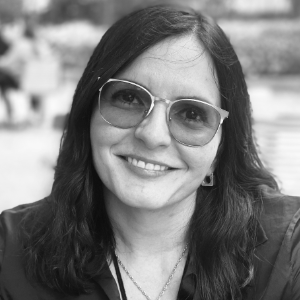Title : Community auricular acupuncture: An example of necroresistance in Puerto Rico
Abstract:
Puerto Rico (PR), a Caribbean Island with a Spanish-speaking population of 3.1 million, is marked by coloniality. Since 1898 the Island has been an unincorporated territory of the United States of America (US) that has historically received unequal treatment compared to the other US citizens living on the mainland. One of the detrimental effects of coloniality in PR is manifested in its economy. The local economy has been set up as a captive market for US corporations resulting in a 72-billion-dollar external debt. A sustained economic crisis that started in 2006 has significantly affected PR’s infrastructure, including its electrical grid and the healthcare system. The latter collapsed after Hurricane María in 2017, leaving more than 3000 deaths mainly due to the interruption of life-sustaining treatments. In addition, during the past years, the massive exodus of physicians to the US mainland further weakened the healthcare system. In an country where more than half of its population has chronic health conditions, allowing its healthcare system to collapse as a result of measures detrimental to public health is a manifestation of necropolitics (i.e., a process whereby the State allows extreme precarious conditions to eliminate certain populations "naturally"). Applying the framework of necropolitics to PR, this presentation focuses on how community auricular acupuncture is being used as a form of necroresistance - the ways in which people defy the threats imposed by necropolitics in their everyday lives. In this presentation, we will describe findings from our ethnographic study of the “Health and Acupuncture for the People Project” (HAPP), which has been providing free treatments in community settings on the Island since 2015. HAPP was created as a response to the economic and health crisis in PR that has been limiting the access Puerto Ricans have to health care. It emphasizes the importance of expanding Puerto Ricans' access to acupuncture and conceptualizes community work as social justice and a collective healing process. HAPP uses the National Acupuncture Detoxification Association (NADA) acupuncture protocol which involves the placement of up to five small, sterilized, and disposable needles in specific sites on each ear. HAPP focuses on treating primarily symptoms associated with mental health (e.g., anxiety, stress, and trauma) and sleep problems. The data of the study arise from participant observation and autoethnography (one of the authors is part of HAPP and is certified by NADA), in addition to informal interviews with HAPP leadership, NADA providers and community members, and visual documentation (i.e., photography and film) throughout numerous clinics on the Island from 2020 to the present. We will present qualitative data and segments from the documentary La Oreja (The Ear) developed by our team to illustrate the value of auricular acupuncture in community settings as a tool to resist the effects of deadly policies that continue to affect Puerto Ricans. We will discuss the implications of the findings in light of the social and health care upheaval in PR and the role of strategies aimed at restoring the legitimacy of health practices that have been historically invisible or marginalized on the Island.
Audience Take Away Notes:
- Learn how NADA's auricular acupuncture protocol can improve the overall health of communities in contexts marked by disasters.
- Reflect on how the experiences and benefits of auricular acupuncture provided in community contexts can be documented through ethnographic and visual methods.
- Critically reflect on how community auricular acupuncture can be seen as a way of resisting necropolitics.
- Identify which specific health conditions have been treated with NADA in Puerto Rico.




